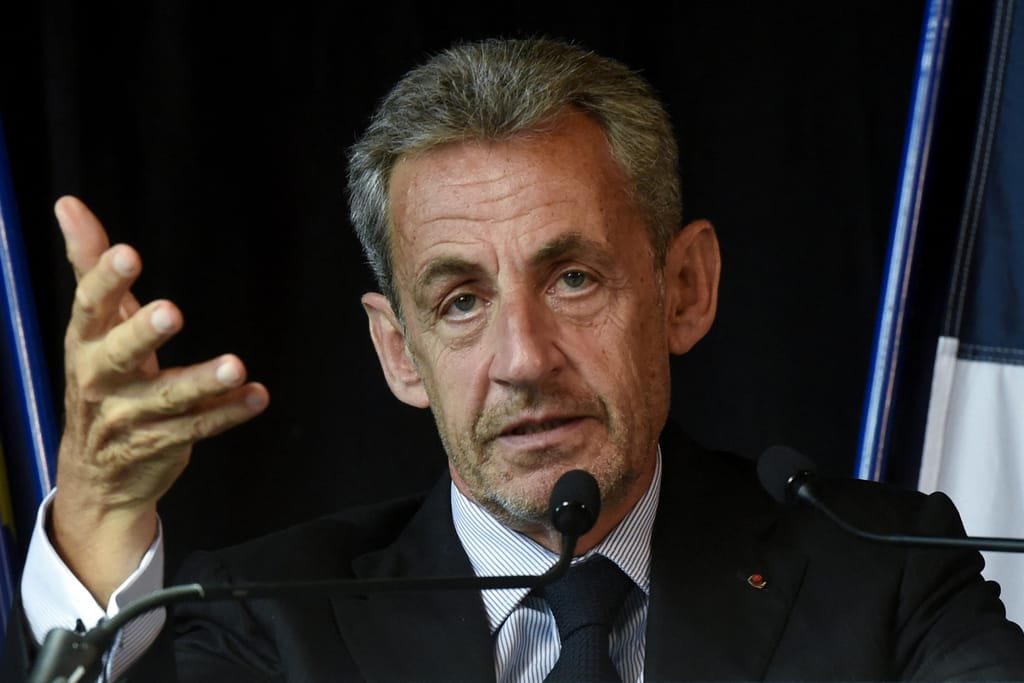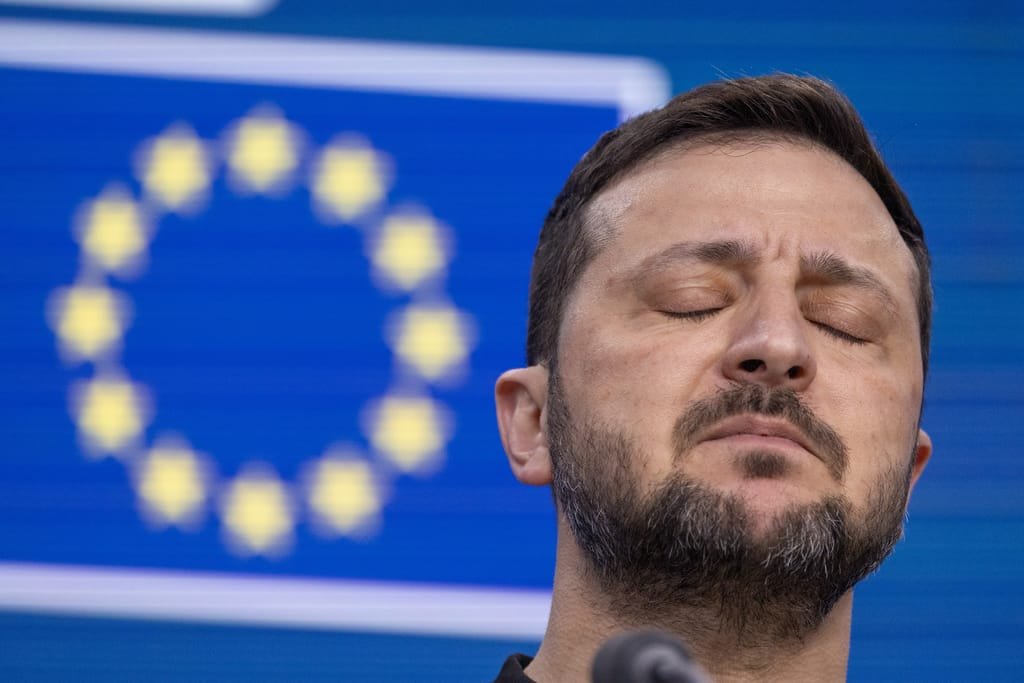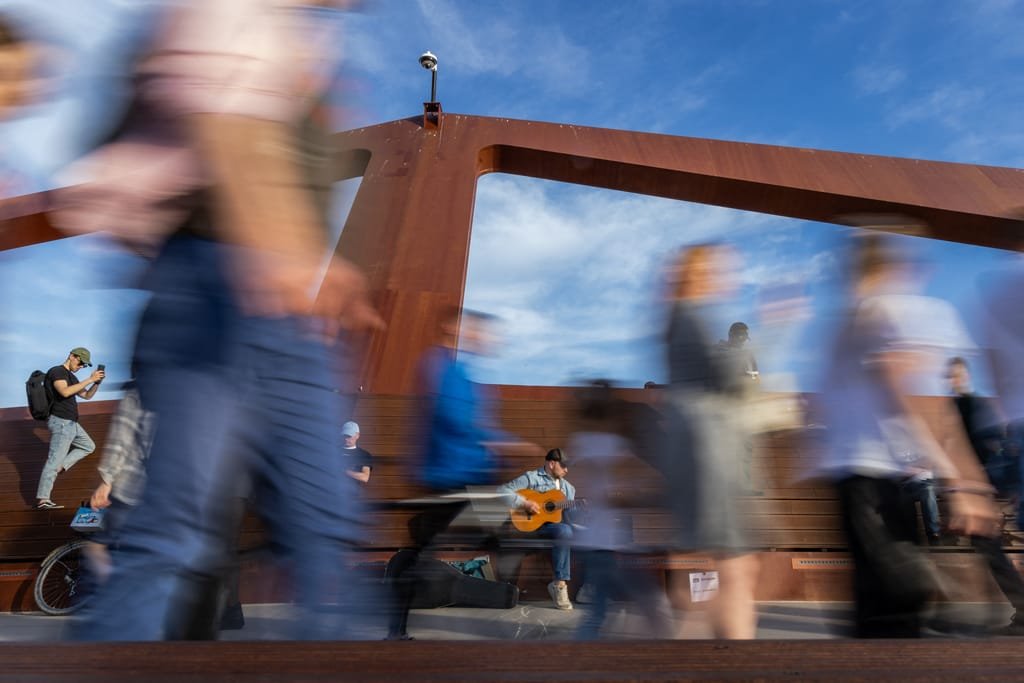The former French president faces up to 10 years in prison if found guilty.

PARIS — Nicolas Sarkozy is already spending a year under house arrest, but if he’s found guilty in his next trial he might have to exchange his ankle monitor for a jumpsuit.
Proceedings in the most serious case dogging the former French president begin Monday, less than a month after the French supreme court upheld a corruption sentence against Sarkozy and ordered him to serve a year under house arrest.
Sarkozy stands accused of having illegally accepted money from the late Libyan dictator, Moammar Gaddafi, to finance his first presidential campaign. The brash, tough-talking former interior minister, who was elected president in 2007, has repeatedly professed his innocence, claiming to be the victim of a conspiracy.
The trial comes after a decade-long investigation triggered by French investigative outlet Mediapart, which in 2012 obtained and published documents allegedly showing that Gaddafi had agreed to provide €50 million to the Sarkozy campaign.
Rumors of Libyan financial support for Sarkozy’s campaign had begun circulating a year before the Mediapart report, in March 2011. The Libyan civil war had just begun, and France, under Sarkozy’s leadership as commander-in-chief, was about to spearhead a NATO effort to overthrow Gaddafi.
The 2023 indictment order from the French financial prosecutor, seen and reported by French newswire Agence France-Presse, alleges that “a corruption pact was forged between Nicolas Sarkozy and Moammar Gadhafi to finance the former’s election.”
A week before Western troops intervened in Libya, the regime’s official news agency released a report claiming that a “secret likely to jeopardize the political career of the French head of state” would soon be revealed.
On March 16, as the NATO intervention loomed, Gaddafi’s son, Saif, went on the record with his allegations. In an interview with Euronews, he said that Sarkozy “must return the money he accepted from Libya to finance his election campaign.”
“The first thing we ask of this clown is that he return the money to the Libyan people. We helped him so he could help the Libyan people, but he let us down,” the younger Gaddafi said.
Karachi affair link
Then there were the declarations of Ziad Takieddine, a Lebanese-French arms broker with links to high-ranking officials on the French political right, including Sarkozy’s circle. Beginning in 2011, Takieddine was questioned multiple times by investigators probing an arms sale scandal known as the Karachi affair. During one hearing, Takieddine mentioned €50 million in Libyan financial aid to Sarkozy’s presidential campaign, according to the financial prosecution.
Takieddine told Mediapart in 2018 that he had introduced Sarkozy to Gaddafi and personally transported “suitcases” of money between Libya and France.
Takieddine was later sentenced to five years in prison over the Karachi affair, but fled France in 2020 — before authorities could put him behind bars — for Lebanon, which does not extradite its citizens.

While in Lebanon, Takieddine strangely retracted his incriminating testimony during an interview with French television channel BFMTV and weekly Paris Match. He later reversed course again, claiming his statements had been taken out of context.
Authorities are investigating whether those changes of heart could have been motivated by witness tampering. Sarkozy and his wife, Carla Bruni-Sarkozy, have been formally placed under investigation in relation to that probe.
Takieddine will be tried in absentia alongside Sarkozyon charges including complicity in illegal campaign financing, money laundering and passive corruption.
Many of Sarkozy’s former closest associates, including two former interior ministers, Claude Guéant and Brice Hortefeux, as well as his former Budget Minister Eric Woerth — now a lawmaker for President Emmanuel Macron’s Renaissance Party — are also on trial for their alleged involvement in the scheme. All three have publicly denied wrongdoing.
This is the third case to bring Sarkozy to trial since he left the Elysée in 2012. In 2021, he was convicted of knowingly exceeding spending limits during his second presidential campaign in 2012, which he lost to François Hollande. An appeals court upheld the ruling, but Sarkozy has taken the case to the highest court in France that hears criminal appeals, and is still presumed innocent.





